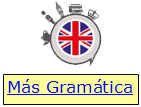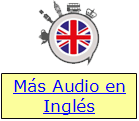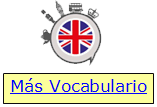Grammar: Reflexive pronouns
How can I guess if I can use the reflexive pronoun with a certain verb
or not?
Is there any special rule to distinguish if the verb accepts or doesn’t
accept the reflexive pronoun.
Thank you, Pau
When do we use reflexive pronouns in English?
What are reflexive pronouns?
Singular – myself, yourself, himself, herself and itself
Plural – ourselves, yourselves, themselves
When do we use them?
When the object is the same as the subject of the verb:
I look at MYSELF in the mirror every morning and think, “Man, I’ve got
to do something about that body” Then I have a fried English Breakfast!
Quote from Steve Jobs:
“For the past 33 years, I have looked in the mirror every morning and
asked MYSELF: ‘If today were the last day of my life, would I want to do
what I am about to do today?’
And whenever the answer has been ‘No’ for too many days in a row, I know
I need to change something.”
These are the verbs most often found with reflexive pronouns:
cut – Be careful with that broken glass………….. or you´ll cut yourself.
dry – When I get out of the shower,…………… I dry myself.
enjoy – When was the last time you really…………….. enjoyed yourself? (Had
a lot of fun, had a good time) – or enjoyed yourselves?
hurt – When you fell of the chair, did you……………hurt yourself?
introduce – ……………..Let me……………. introduce myself….
kill – Which famous people have……………………………. killed themselves? (you can
use ‘themselves’ to refer to ‘him’ or ‘her’ if you don’t know the gender)
prepare – Prepare yourselves for …………………a fantastic podcast next time
teach – ………………….. teach yourself the violin, piano, drums etc
My new desklamp turns itself on.
Be careful of the two expressions “on my own” and “by myself”
We can use a reflexive pronoun with most transitive verbs (verbs that
take a direct object – transitivo),
Some verbs can change their meaning when they have a reflexive pronoun
as direct object:
HELP
Would you like to help yourself to another drink? = take another drink
if you want.
BEHAVE (comportarse)
I wish my son would behave himself = I wish he would behave well.
FIND
He found himself drunk and sleeping in the park. = He was surprised when
he realised that he was drunk and sleeping in the park.
SEE
They saw themselves as the next Destiny’s Child. = They imagined that
they were like Destiny’s Child.
Craig sees himself doing the same thing 5 years from now.
Reza sees himself continuing to podcast.
APPLY (aplicar)
She applied herself to the job of mastering the software. = She worked
very hard to learn to use the software.
“Reza’s gonna (going to) eat himself a big juicy steak.”
BUSY (mantenerse ocupado)
He busied himself in the kitchen. = He worked busily in the kitchen.
CONTENT (estar contento – to be satisfied)
Reza had to content himself with a cheese sandwich for lunch. = Reza had
to be satisfied with a cheese sandwich.
AMUSE (divertir, entretener, distraer, pasarlo bien)
How do you amuse yourself when you’re not teaching?
Craig amuses himself by watching videos of microphones on YouTube (because
he has a very sad life!)
The last time Craig got himself into trouble was when he was caught
speeding by a police speed camera.
BLAME (culpar)
Don’t blame yourself for not remembering Mickey Mouse’s birthday.
DISTANCE (distanciarse)
Reza always distances himself from me when I start to sing the Mickey
Mouse theme tune.
EXPRESS (expresar)
Sometimes I find it difficult to express myself.
The verb ENJOY always has an object:
I enjoyed the holiday.
We enjoyed the party.
She enjoyed it.
If enjoy has no other object, we use a reflexive pronoun:
Reza and I are enjoying ourselves. We’re having a good time. We always
enjoy ourselves.
We do not use a reflexive pronoun after verbs which describe things
people usually do for themselves, such as wash, shave (shave = afeitar),
dress etc, UNLESS we want to give emphasis to the verb:
When I was in the army I had to wash myself in cold water. (I can say
just ‘wash in cold water’, but I want to add emphasis) – She’s old
enough to wash herself.
I was 16 before I started to shave (myself). I remember watching my dad
shave himself in front of the mirror.
The first time Reza shaved himself he cut himself.
We use reflexive pronouns as the object of a preposition when the object
refers to the subject:
I paid for myself.
They had to cook for themselves.
He was feeling very sorry for himself.
We use a reflexive pronoun with the
preposition “by” when we want to show that someone did something alone
or without any help:
He lived by himself in an enormous house.
She walked home by herself.(on her own)
The children got dressed by themselves.
I learned French by myself.
We use a reflexive pronoun to emphasise
the person or thing we are referring to:
Moraira itself is quite a small town.
especially if we are talking about someone very famous:
David Beckham himself gave me this old pair of smelly football socks.
We often put the reflexive pronoun at the end of the clause when we are
using it for emphasis:
I made the cheese sandwich myself.
Reza and I produce these podcasts ourselves.
Vocabulary:

What’s the difference between shoppers, customers and consumers?
A shopper is someone who goes shopping. They may, or may not, buy
something.
They may go window shopping (ir de escaparates, mirar vidrieras)
A customer is in a position to buy (in a shop, for example)
‘Shopper’ and ‘customer’ are not always interchangeable. For example,
being a “shopper” suggests that a person is looking for specific,
tangible items to buy.
This shopper is also the “customer” of the place in which the purchase
will be made. However, a person can be a customer without being a
shopper.
For example, a person who goes to a massage therapist is the customer of
the massage therapist, but not a shopper, a person eating in a
restaurant is a customer, not a shopper.
We are all consumers because we consume products and services.
‘Consumer’ is a very general word for people who consume goods and
services.
A shopper is a person who buys something in the market, shop etc. I can
say that I ‘consume’ gas and electricity, but I don’t go and shop for
them, I don’t compare prices.
A tube of…….toothpaste (tubo)
A bunch of……flowers, bananas (ramo)
A pot of….paint, honey (tarro, bote)
A tin of….tuna, Coke (a can of Coke) (una lata de…)
A bar of……chocolate / soap (tableta de…)
A carton of….milk, orange juice, cigarettes (US) – (un brick de…)
A packet of (un paquete de…)
A tub of….butter, margarine, ice cream (tarrina)
Craig and Reza’s Weekly wind-ups
(to wind up = annoy, irritate, bother: fastidiar, disgustar, molestar)
Reza – overheated, stuffy (sofocante) buses
Craig – fish bones (espinas)
 *Dispones
de más
PODCAST en inglés publicados en los cuadernos anteriores *Dispones
de más
PODCAST en inglés publicados en los cuadernos anteriores
a los que puedes acceder directamente así como al índice de su
contenido. |
|
|



 *Dispones
de más
*Dispones
de más


